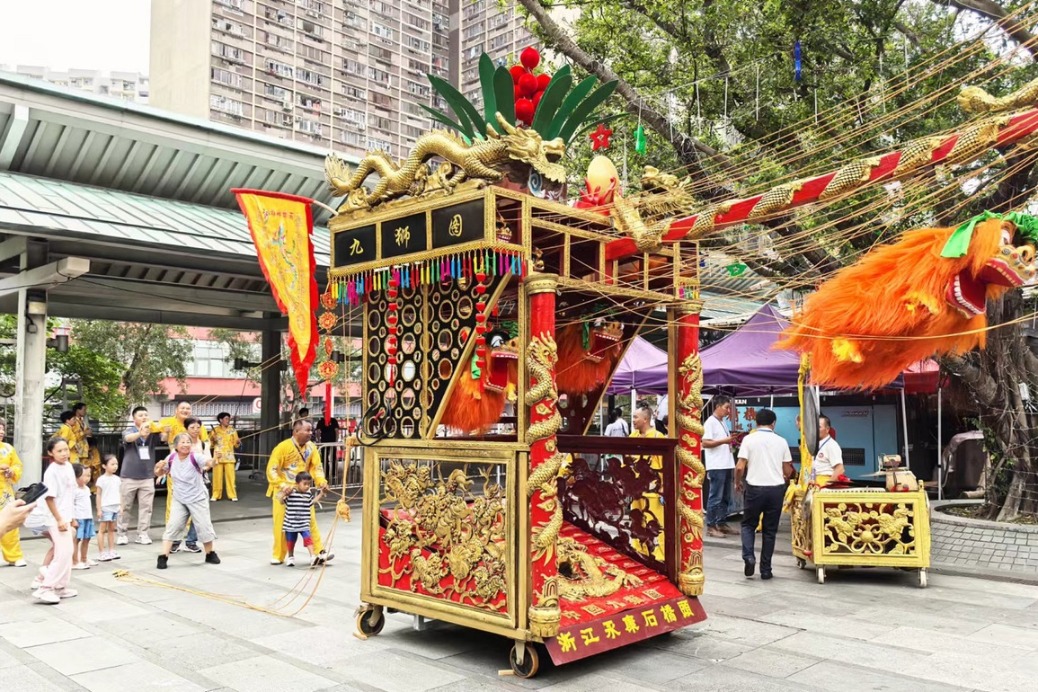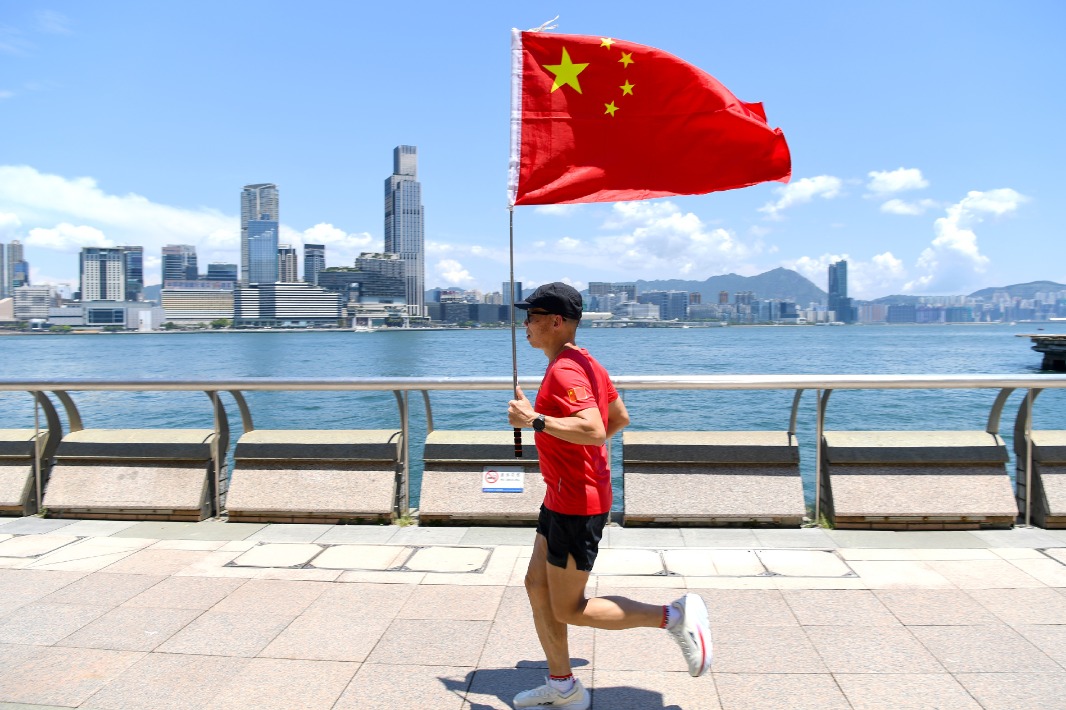Protective measures for outdoor workers help stifle summer sizzle


NANNING — Adorned with a safety helmet and enveloped in a protective suit, Chen Chuyan was diligently performing routine maintenance on the overhead power lines suspended above a railway in the Guangxi Zhuang autonomous region.
Engaging in outdoor work during this scorching summer can be an arduous task, yet the morning sun at 7 am was mercifully gentle. After more than an hour of dedicated effort, Chen completed the maintenance with a sigh of relief as sweat droplets as big as beans rolled down her cheeks.
Since the beginning of July, southern China has been enduring an unrelenting series of broiling heat waves. The extreme weather has not only challenged the steady operation of production and daily life across the region but has also brought significant hardships to outdoor workers.
Protecting those toiling in fields such as construction and sanitation, express couriers, truck drivers and workers in emerging sectors has become a critical focus to ensure safety in the face of the sweltering conditions.
"We have established specific safety procedures and protective measures tailored to the work environment and task requirements," said Pang Haifeng, manager in charge of production technologies at the Beihai branch of China Southern Power Grid.
Considering factors such as temperature and humidity, Pang said the company has adjusted work schedules and moderated the intensity of outdoor tasks during the summer. It has also implemented a shift system to reduce prolonged exposure to the elements and ensured the availability of ample drinking water and heat-relief medications.
Adjusting and optimizing work hours and the working environment have been emphasized as essential strategies for safeguarding workers from heat-related risks.
In June, the Xingning district in Nanning, Guangxi's regional capital, adjusted work hours and methods for local sanitation workers, prioritizing rapid cleaning and mechanized sweeping during peak heat times.
Hou Xin, deputy head of the district's sanitation management station, said that mechanical sweepers' operational hours have been extended during the hottest periods to minimize manual labor.
"We also encourage workers to take breaks nearby after working for a while during the hottest hours, based on their physical condition," said Wu Zhishan, head of the station's sanitation team, adding that local service stations and sanitation hubs are all equipped with air conditioning, refrigerators and other amenities.
Some banks and telecom companies have allowed their lobbies to serve as air-conditioned sanctuaries for sanitation workers, while many pharmacies offer complimentary herbal tea to help combat the heat, according to Wu.
At a service station in the district, 49-year-old sanitation worker Zhang Xiuling turned on the air conditioning at lunchtime and, after retrieving food from the fridge, began warming up her lunch using the microwave.
"The station has a fridge where we can store our packed lunches, preventing them from spoiling in the heat," she said.
The hot and humid climate of Guangxi has also led to a surge in mosquito populations. In response, the emergency medical kit at the station has been restocked with mosquito repellent. The local workers' union regularly conducts educational sessions on mosquito prevention and disease awareness, reminding outdoor workers to take necessary precautions against illnesses.
In Nanning alone, there are over 300 such service stations available to all outdoor workers, including traffic police, couriers and delivery personnel, during the hottest hours from 11 am to 3 pm.
Xinhua
- Renmin University's new Tongzhou campus officially opens
- China's top political advisor urges renewed efforts in building community for Chinese nation
- Taiwan issues typhoon warning as Krathon nears
- Most Chinese regions to enjoy sunny weather during National Day holiday
- Remains of 8 martyrs identified in Xizang
- Martyrs' Messenger: Are you still waiting for me?





































